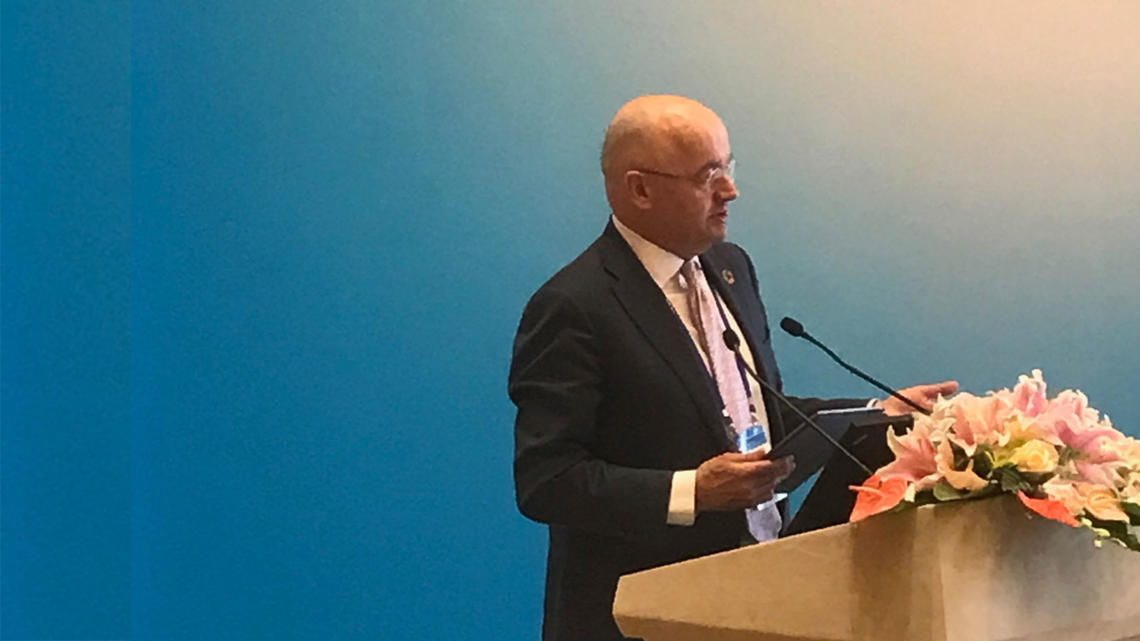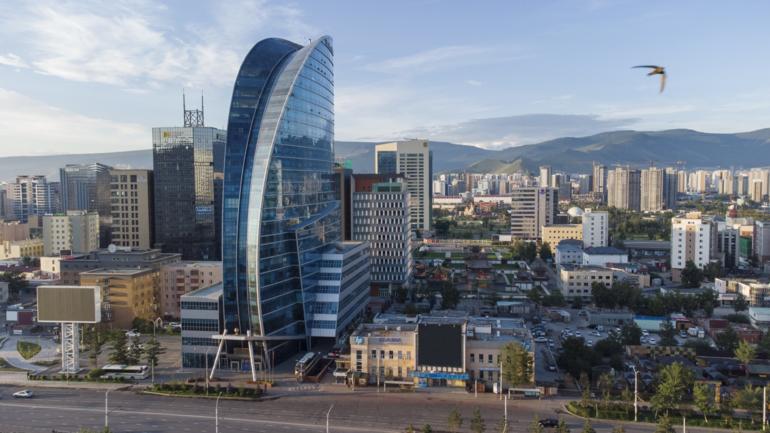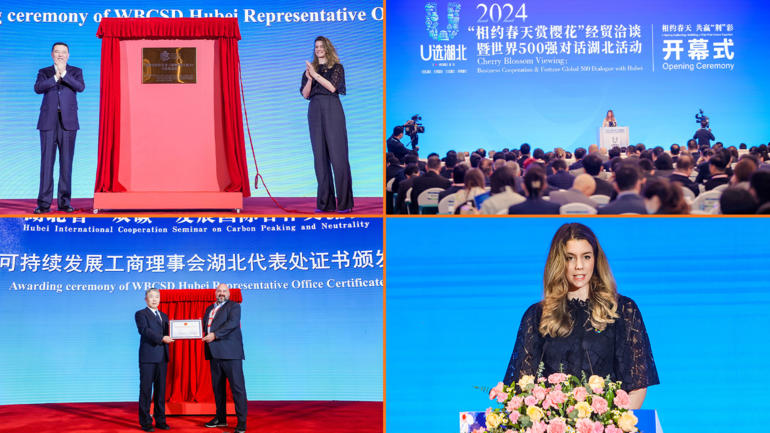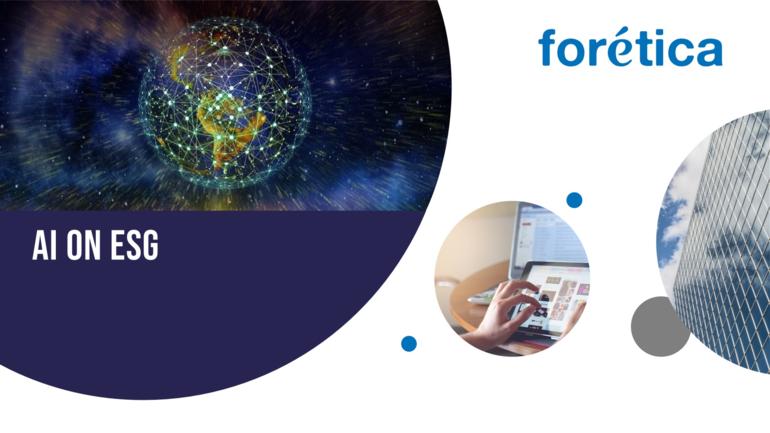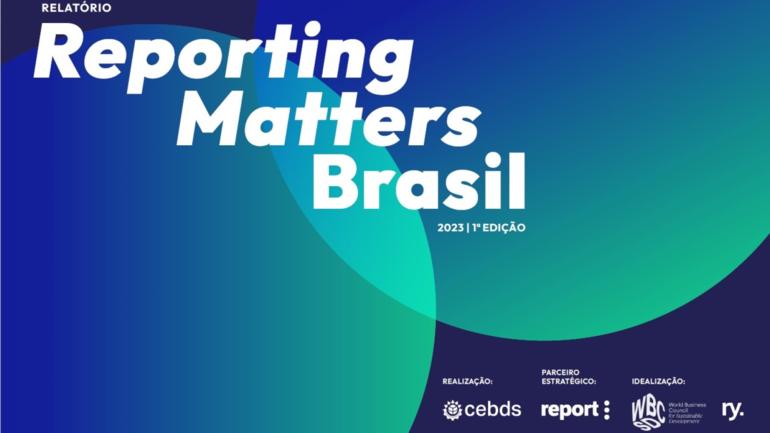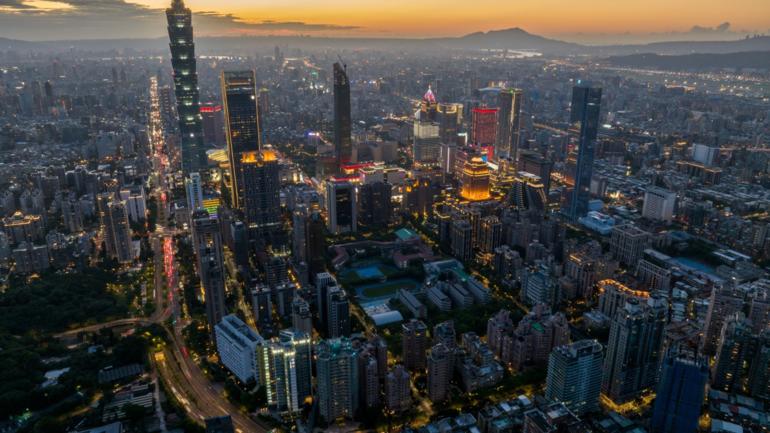Geneva, 5 November 2018: Peter Bakker, President and CEO of the World Business Council for Sustainable Development (WBCSD), completed a series of keynotes, high-level meetings and events across China over the past few days.
Mr. Bakker and Cao Yaofeng, member of the WBCSD Executive Committee and former Deputy General Manager of Sinopec, Academician of CAE, Director of the Steering Committee of the National Geothermal Center, visited the city of Xiong’an and paid particular attention to what is known as the New Area of the city. Among other dignitaries, they met with Mr. Chen Gang, Party Secretary and Director of the Xiong’an New Area CPC Working Committee and Vice Governor of the Hebei Province.
Xiong'an New District has been chosen to be built as a green and smart new city which could serve as a national model in China for what urbanization could look like in the future. Based on green, intelligent and low-carbon concepts, the construction of the district is ambitious and will promote the design, construction and operation of green buildings while also coordinating the supply of electricity and geothermal energy, etc. New District will strive to enable a green and low-carbon lifestyle for its inhabitants and become a model of urban construction.
The meeting focused on the greater need for sustainability in general and integrated energy solutions in an urban setting and the pathways to a low-carbon city. The visit set a foundation for future cooperation between the two sides, where Mr Chen highlighted that the New Area was a canvas for what a green, low-carbon, smart and sustainable city could look like, while Peter emphasized that WBCSD, and its almost 200 member companies, was ready to increase cooperation and share best practices to help make New Area a reality.
WBCSD is liaising with Xiong’an in the context of its Low Emissions Economy Partnership (LEEP), a a strategic initiative to bring together a cross-sectoral group of companies and some selected cities to jointly drive greenhouse gas emissions reduction projects through a new type of public-private partnership.
Mr. Bakker, at the invitation of the China Council for International Cooperation on Environment and Development (CCICED) in Beijing, was invited to attend the 2018 CCICED Annual General Meeting. He spoke in one of the eight thematic parallel open forums on the topic of “Green Belt and Road and the Sustainable Development Goals (SDGs)”, chaired by Mr. Li Ganjie, Chinese Minister of Ministry of Ecology and Environment and Mr. Eric Solheim, Executive Director of UN Environment.
Bakker focused his intervention on the Belt & Road Initiative (BRI) and its challenges to become a “Green Belt & Road”. He underscored the need to align the colossal development and infrastructure initiative with the SDGs, coupled with the possibilities for the private sector to implement solutions at scale. He said: “Businesses need an efficient financial system to operate and grow. Innovative financial products, agreed standards and metrics defining green infrastructure and investments and a clearly defined fiduciary duty and stewardship in the BRI market would help the business community to better position themselves and create long-term economic success by integrating positive impact on environment and the social cohesion along the BRI.”
Other speakers included Mr. Li Yong, Director General of the United Nations Industrial Development Organization, leaders of other international organizations such as WRI, WWF and current and former environmental ministers of Israel, Mongolia and South Africa.
Lastly, Bakker took part in a CCICED preparatory business roundtable on low-carbon and circular economy. As the moderator of the session, Peter led the discussions on the role of business in promoting a low-carbon and a circular economy in a panel made up of key Chinese and western energy and consumer industry leaders. He encouraged the businesses to collaborate with each other and take a systematic approach in addressing shared sustainable issues.

